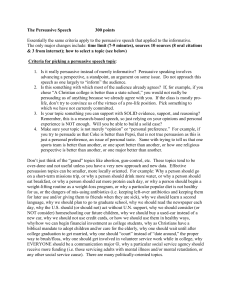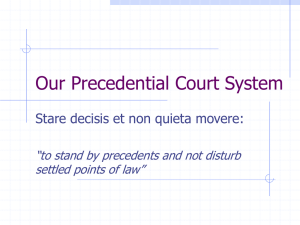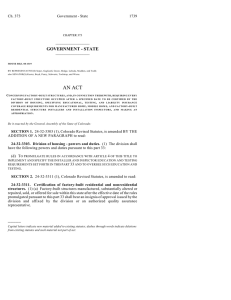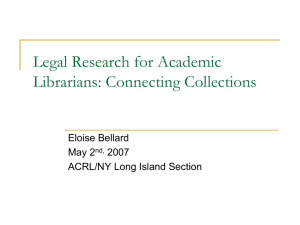Legal Research Tip: Types of Legal Authority
advertisement
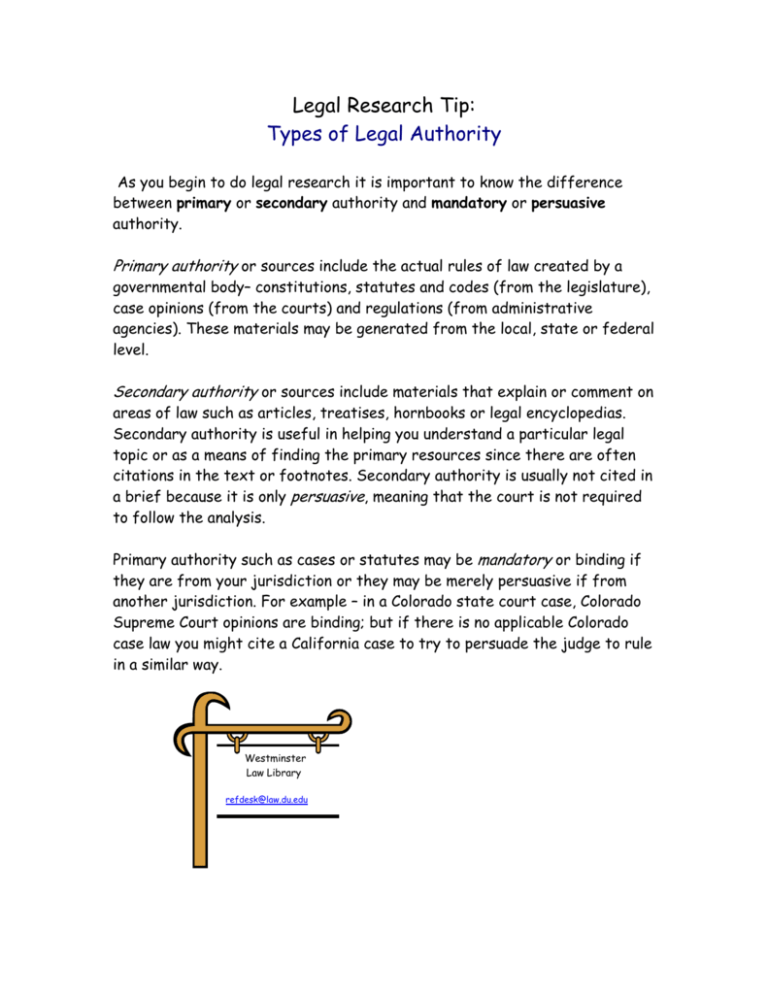
Legal Research Tip: Types of Legal Authority As you begin to do legal research it is important to know the difference between primary or secondary authority and mandatory or persuasive authority. Primary authority or sources include the actual rules of law created by a governmental body– constitutions, statutes and codes (from the legislature), case opinions (from the courts) and regulations (from administrative agencies). These materials may be generated from the local, state or federal level. Secondary authority or sources include materials that explain or comment on areas of law such as articles, treatises, hornbooks or legal encyclopedias. Secondary authority is useful in helping you understand a particular legal topic or as a means of finding the primary resources since there are often citations in the text or footnotes. Secondary authority is usually not cited in a brief because it is only persuasive, meaning that the court is not required to follow the analysis. Primary authority such as cases or statutes may be mandatory or binding if they are from your jurisdiction or they may be merely persuasive if from another jurisdiction. For example – in a Colorado state court case, Colorado Supreme Court opinions are binding; but if there is no applicable Colorado case law you might cite a California case to try to persuade the judge to rule in a similar way. Westminster Law Library refdesk@law.du.edu





